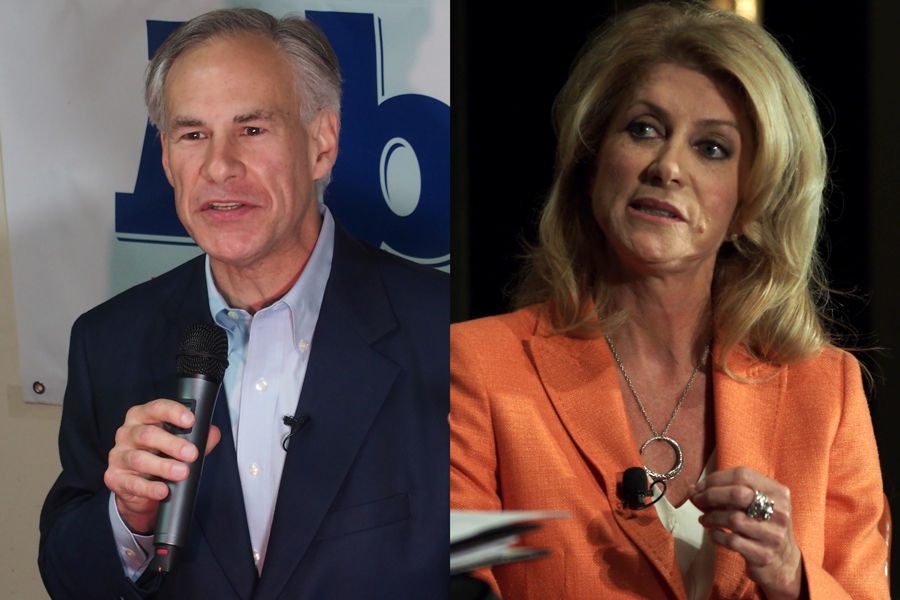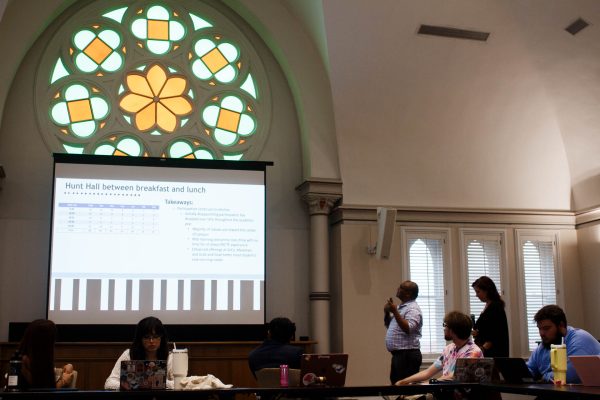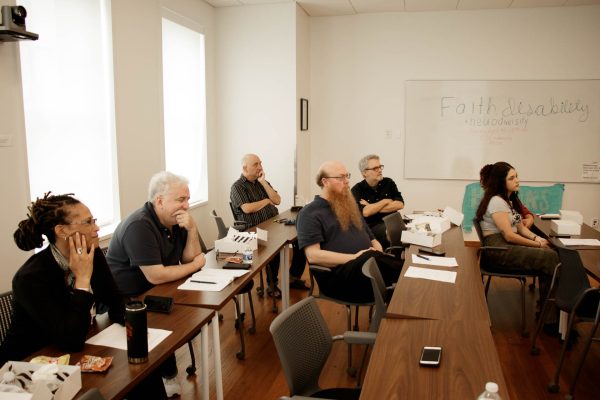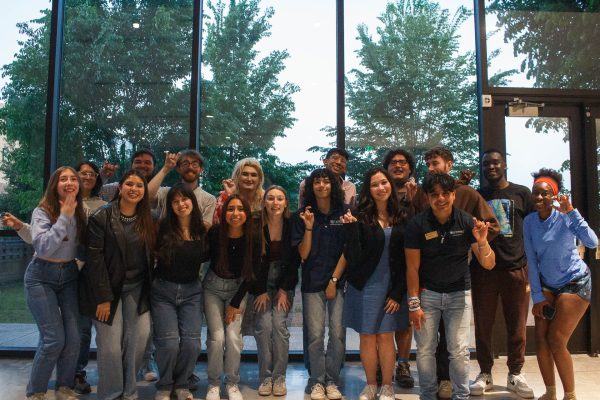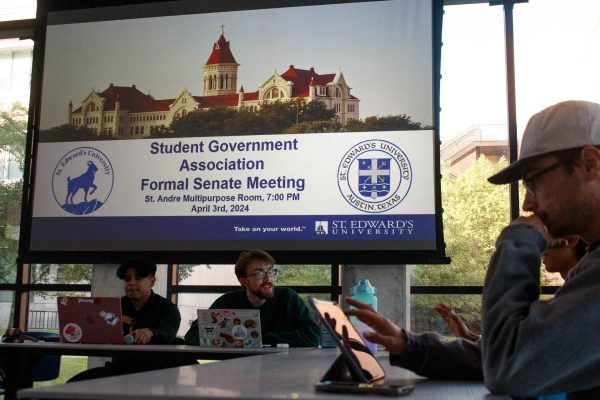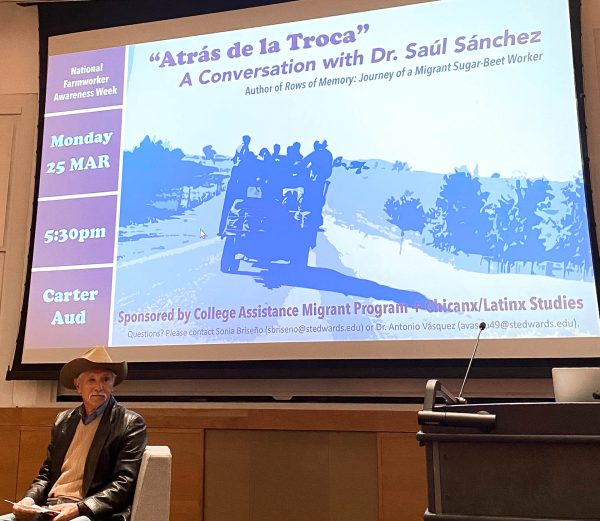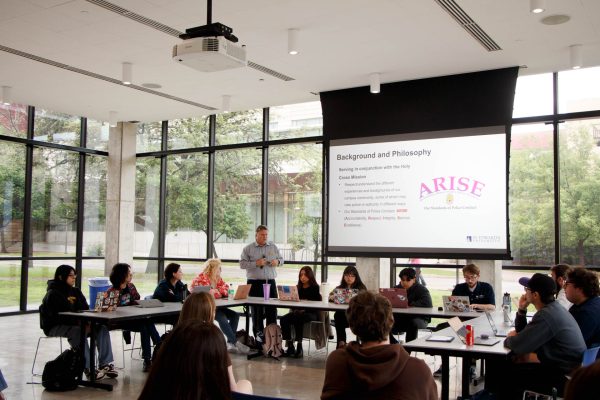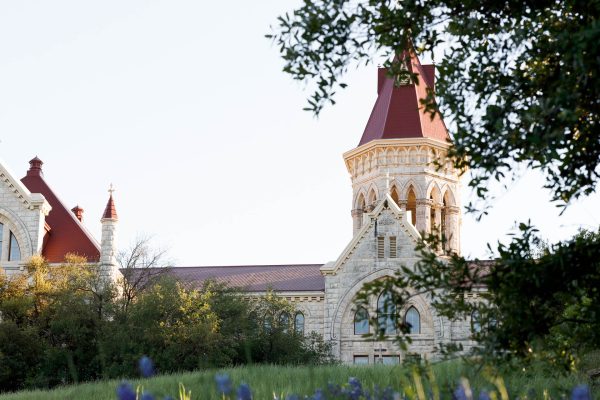Gubernatorial debate: student voters focused on education
Abbott leads Davis with voters under 30; he leads 52 percent to Davis’s 25 percent, according to the recent Texas Lyceum poll.
Prior to the gubernatorial debate between state Sen. Wendy Davis and Attorney General Greg Abbott, students gathered in the Student Life lounge on Tuesday night for a facilitated pre-debate discussion. There were self-affiliating Republicans, an Independent and a mix of Democrats in the room.
While there were a variety of levels of past knowledge on the campaigns, students seemed to agree on one thing: the importance of education.
“(I’ve) mostly been following the debate on education,” freshman political science major Jon Carter said.
The desire to hear more about education by the students would be fulfilled later in the evening when the candidates squarely addressed standardized testing, preschool programs and education funding.
The debate began with a segment asking the candidates to address the Ebola case recently reported in Dallas, the first confirmed case in the country. Both candidates had conferred with medical staff in the concerned area.
This was frustrating to some students, as it seemed clear that the candidates would have the same response — which they did.
“I want to hear people talk about what they think matters, not just what will get them elected,” senior Michael Haywood said.
Ebola was “not a productive thing to talk about,” Haywood said.
Students were more receptive to the next topic.
“How should test results be used, and to what extent should test scores be used to determine whether a student graduates, or is advances to the next level?” Gromer Jeffers, a Dallas Morning News reporter who sat on the debate panel, asked both candidates.
Both candidates had very explicit and clear responses on the issue of education.
Davis cited her co-authorship of legislation that reduced the number of end of course exams from 15 to five.
“It’s now time to decrease those pressures in middle and lower school grades, as well,” Davis said.
Davis then criticized Abbot’s policy for proposing that 4-year-olds undergo standardized testing. Abbott declined this criticism in his response.
His response instead emphasized his goals for literacy and restructuring preschool.
“To ensure that we build a strong foundation for education for our children beginning at pre-k, going all the way through third grade,” Abbott said. “Ensuring that every child in the state of Texas is going to be able to read and do math, at or above, grade-level.”
Davis’ rebuttal was clear: she cited page 21 of Abbott’s plan, which calls for pre-kindergarten standardized testing. Davis then spoke on supporting teachers without the use of high-stakes tests that are currently in place.
Abbott responded by encouraging audiences to visit his website to learn more about his stance on the issue, which mirrors Davis’ own. Abbott concluded by voicing his goal to improve Texas’ education system until it is the top in nation.
The next question, which was tweeted to the debate moderators, sought out the candidates’ views on allowing undocumented immigrants to obtain driver’s permits.
Abbot called for “abiding by federal law to ensure we are not providing licenses that could be used for other purposes.”
Davis had a similar platform on the matter, because she regards it as an issue of safety on the roads.
The next questions addressed the ethical behaviors of each candidate in their respective public offices and private businesses.
Davis was questioned on use of funding connected to her law firm; Abbott was questioned regarding the enterprise fund he controls as attorney general.
The debate turned again to the issue of education, with a question about the specific dollar amount Texas should spend per student.
Davis cited her filibuster against 5.4 billion dollar cuts to education funding last year. She never provided a specific dollar amount, though she was asked multiple times.
Davis stated her focus was on implementing less standardized tests and more extra-credit courses.
Abbott said he would push for 1,500 dollars per student in pre-kindergarten, and that such an upgrade would cost billions and must be prudently spent.
When asked how Texas could be first in the nation with so little extra funding, Abbot said that it is about the results, not the price tag.
Jeffers’ next asked the candidates about the Affordable Care Act and additional federal funding for Texas. The candidates responded along party lines, as with questions about marriage equality and abortion.
Abbott proposed a block grant solution regarding the ACA. Jeffers rebutted that, according to some conservatives in the legislature, this solution would be used ineffectively.
Abbott then referred to federal impositions which might “bankrupt Texas by imposing on Texas the overwhelming Obamacare disaster.”
Davis responded by saying that taxpayer money will go to federal government and never return if not legislated to do so.
“A true leader stops partisan posturing and does the right thing for her state,” Davis said, detailing her desire to expand Medicaid in Texas.
The debate also addressed whether toll roads serve as a feasible solution, the cost of homeowner’s insurance and immigration, ending with a closing statement from each candidate.
Follow Jackie on Twitter for more!


